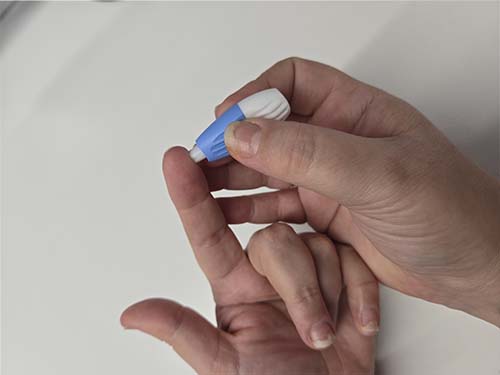
Testing for PEth, liver function and CDT
When used alongside hair testing, blood alcohol testing can help to provide a comprehensive view of chronic excessive alcohol use. We offer blood tests for phosphatidylethanol (PEth), liver function testing (LFT) and carbohydrate deficient transferrin (CDT).
For phosphatidylethanol (PEth) testing, we offer two forms of collection: venous and dried blood spot. The latter is perfect for needle-phobic donors as only a small prick to the finger is required and collection takes less than two minutes.
Why Lextox?

Professionally trained phlebotomists.

Analysis results accepted by all UK courts, issued by Lextox in five working days or less.

Three different types of blood tests for an accurate interpretation.

A comprehensive picture of historic chronic excessive alcohol use when used in conjunction with hair alcohol testing.
Blood alcohol testing explained
Phosphatidyethanol (PEth)
PEth is a direct biomarker found in red blood cell membranes following alcohol consumption. This test isn’t affected by medication or health problems and provides a detection period of up to four weeks prior to sample collection. For needle-phobic donors, we offer dried blood spot testing, which only requires a small prick to the finger.
Liver function testing (LFT)
A liver function test provides a snapshot of potential liver damage due to excessive alcohol use by monitoring biomarkers in the blood stream. Any damage to the liver alters the biomarkers in the blood stream allowing any impairment to be highlighted.

Carbohydrate deficient transferrin test (CDT)
CDT measures the percentage of the protein transferrin that is deficient in carbohydrate. Alcohol consumption can interfere with the binding of carbohydrate molecules to transferrin and so excessive alcohol use two to four weeks prior to the test can elevate levels of transferrin that is deficient in carbohydrate, making it a good marker to assess alcohol consumption.
Want more information or to book a collection?
